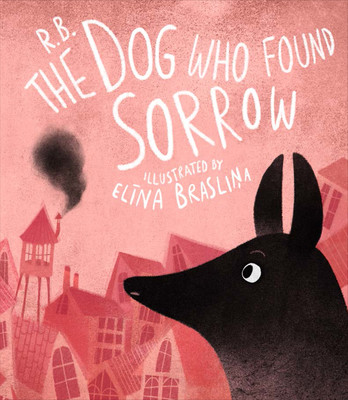 An uncanny magic occurs in picture books when you achieve the perfect balance between images and words. The Dog Who Found Sorrow, written by Rūta Briede, is both illustrated and translated from Latvian by Elīna Brasliņa, a combination which may be in part why this book exudes such eloquence. Evocative illustrations are scattered sparingly with text that entices you into to a fable of resilience against melancholy.
An uncanny magic occurs in picture books when you achieve the perfect balance between images and words. The Dog Who Found Sorrow, written by Rūta Briede, is both illustrated and translated from Latvian by Elīna Brasliņa, a combination which may be in part why this book exudes such eloquence. Evocative illustrations are scattered sparingly with text that entices you into to a fable of resilience against melancholy.
Add in the final incantation of the book being published by The Emma Press, who are increasingly making waves with their poetry anthologies and other books, and it’s small wonder that this book is both beautiful and haunting.
Pages bloom with scant petallings of words layered lightly on a pictorial patchwork that brings our hero’s predicament to life: “One morning my home town was invaded by black clouds – first there was just one, but soon I lost count.”
While the theme of a town submerged in sadness seems decidedly grown up, the handling of the text and artwork opens it up to all demographics. In fact, this feels like an acknowledgement of the sophistication of our emotions, regardless of age.
In the story, everyone is depressed by the clouds filling their town, and no one thinks they can do anything about it, not even our hero. But this is no ordinary dog, this is a dog who wears an overcoat, grows roses and plays the harmonica. He can even climb a ladder.
I love the detail that our hero is a dog living as an equal among humans – it’s one of those appealing touches beloved of children’s books and requiring no explanation.
Our hero soon decides it’s silly to just accept things as they are – sad and grey. “Maybe there was something I could do. I put on my rain hat, took my backpack and climbed up to the attic to get onto the roof.”
The poetry of the book is so elegantly echoed in the rich, world-conjuring imagery that I can easily imagine being transformed into an animation in the future. Our dog is afraid but determined, which is something we can all draw hope and comfort from.
And with such an inspiring protagonist, of course there’ll be a happy ending.
The Dog Who Found Sorrow is published by The Emma Press.
Seen or read anything interesting recently? I’d love to know. I’m always happy to receive reviews of books, art, theatre and film. To submit or suggest a review, please send an email to judydarley(at)iCloud.com.


